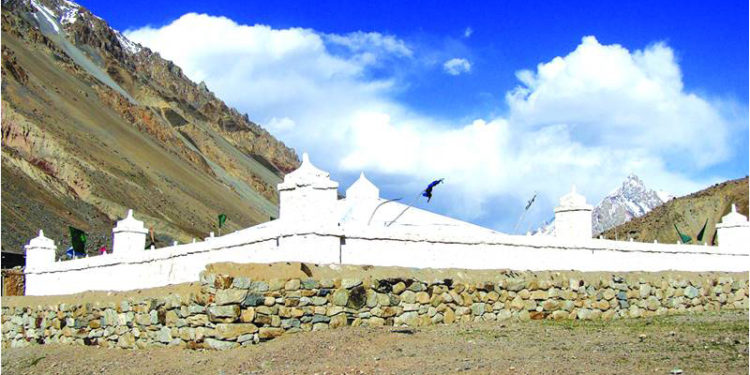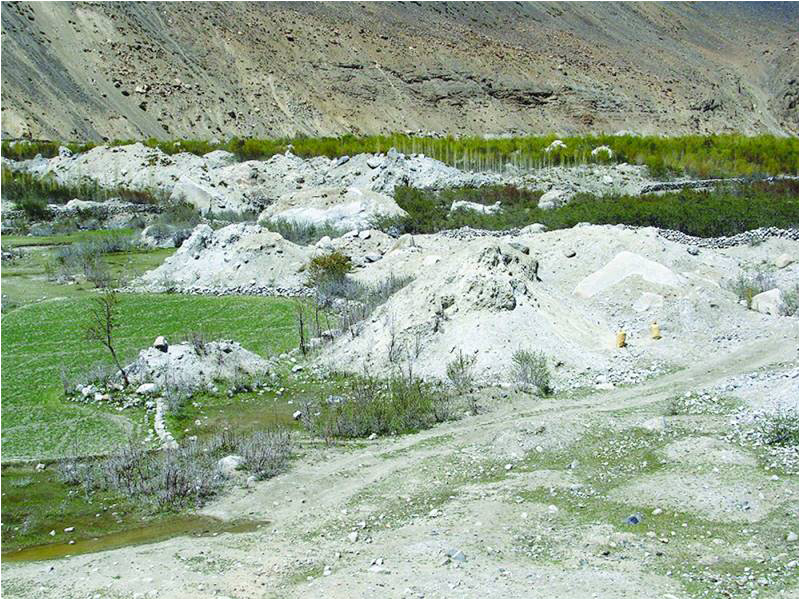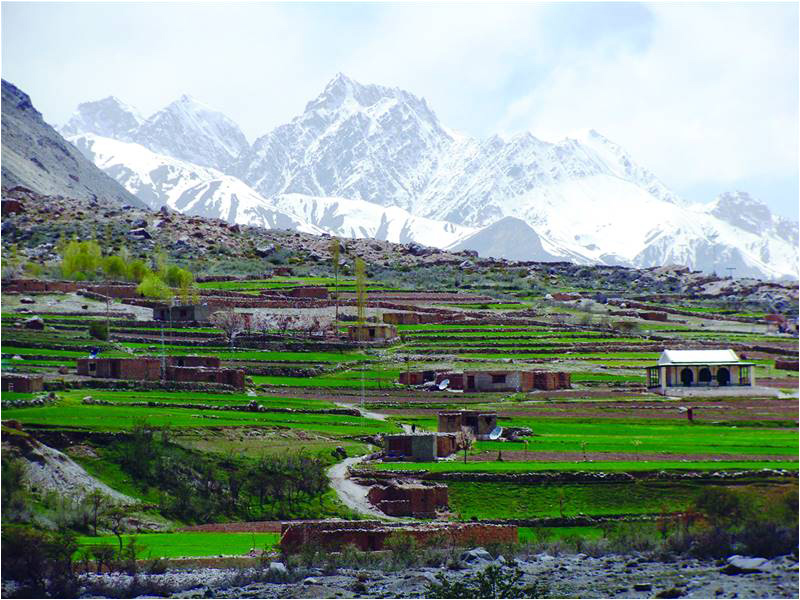
This folklore still dominates the social life of people and remains one of the principle forms of entertainment and education for many of Gojal’s inhabitants.
Zulfiqar Ali Kalhoro
Gojal valley, also known as upper Hunza, has a rich tradition of folklore, which includes all manner of myths, legends, ballads, folktales, riddles, proverbs and superstitious. This folklore still dominates the social life of people and remains one of the principle forms of entertainment and education for many of Gojal’s inhabitants.
Chiporsun, a captivating valley in Gojal tehsil, exemplifies this tradition of folklore. Folk storytellers narrate many myths in very rhythmic manner to amuse both audience and themselves. However, myths about the destruction of a village and the killing of nine-headed dragon still dominate the daily discourse of the inhabitants of Chiporsun.
Almost every adult knows about these stories and transmits them to a new generation.

Legend has it that some 500 years back or so, Chiporsun was thickly populated. People were wealthy and subsisted on both agriculture and livestock. The climate was not as severe as it is today. People used to grow wheat. They were non-Muslims and animism was widespread among the inhabitants of Chiporsun valley.
The story runs as follows.
One saintly person Baba Ghundi came from Ghund in Afghanistan to preach among the inhabitants of Chiporsun. He was a muballigh (missionary) of the Shia branch of Islam. In his time, he tried to preach the faith of Islam amongst the inhabitants of Chiporsun. There was a large settlement near the present village of Shitmirg where Baba Ghundi came to preach. There were about 300 households in the village. Some inhabitants of the Chiporsun believed that it was not Baba Ghundi but Shah Shams who visited the village. Whosoever he was, he tried to preach Islam amongst the inhabitants. But the inhabitants of that village did not listen to him. He was not given even a glass of water or milk to drink. Instead, he was driven out of that settlement. However, an old woman showed mercy upon him and served him some milk. He got very angry when no one, except the old lady, from the village entertained him. The preacher, whether it was Baba Ghundi or Shah Shams asked that old lady to collect her belongings and leave the village as fast as she could. The old lady gathered her belongings and went out of the village. As she left, all of a sudden, torrential rain lashed the village which inundated the river. The old lady saw that the saintly person was flying over rushing waters of flood. She had forgotten to take her garbal (an object used for cleaning wheat). When she saw him flying over the floodwater, she requested him to bring her garbal to her – which he did. Then flood then rushed down, causing the present moraine. The entire village was destroyed, save a strip of cultivation that belonged to the old woman. The strip of cultivation or household of the woman which survived is locally called Kampir Dayor (Village of the Old Woman).
Legend has it that beyond Yishkook near present-day Ziarat there was a lake in which a nine-headed dragon lived. Whenever hungry, he used to eat people from the village
The small mounds resulting from the flood’s destruction can still be seen near the village of Shitmirg. These seem to have been destroyed by Yishkok glacier which might have inundated the river, creating the present moraine. However, the local inhabitants insist on linking the destruction to the curse by Baba Ghundi or Shah Shams on the people of that village.

Apart from this narrative, there is another story which also occupies a significant position in the folklore of Chiporsun. This story is about the killing of a nine-headed dragon by Baba Ghundi. Legend has it that beyond Yishkook near present-day Ziarat there was a lake in which a nine-headed dragon lived. Whenever hungry, he used to eat people from the village which lay close to lake or Yishkok. Either a man or a woman was offered to the dragon whenever their turn was imminent. One day a saintly person was passing by a lake. He saw there a young man standing by the lakeside, seemingly frightened. The saintly person or Baba Ghundi went to ask him what had happened. The young man told him the whole story about how they offered themselves to nine-head dragon. The saintly person asked him to stay there and call upon him when the dragon appeared. The young man did as told. Baba Ghundi attacked the dragon with a sword and tore it to pieces. When this news reached the village, people got very elated and arranged celebrations which included some “obscene” activities. This made the saint angry and he cursed them to destruction!
The remains of that lake and alleged bones of the dragon can be seen on way to the Ziarat of Baba Ghundi. Any local, if accompanying you, invariably points to the lake and talks about the many miracles of Baba Ghundi including that of killing the nine-headed dragon.
It is difficult to know which tribe lived here when Baba Ghundi was performing his miracles. The Wakhis who now inhabit the valley of Chiporsun came from modern-day Wakhan in Afghanistan about four centuries back.
An oral history of floods is still preserved in the minds of people of Chiporsun. Apart from the flood that destroyed the village near Shitmirg, the valley also experienced flooding during the reign of Mir Silum Khan (1784-1824) which was believed to have swept away many villages of Chiporsun.
___________________
 Dr. Zulfiqar Ali Kalhoro is an anthropologist and has authored 12 books: ‘Symbols in Stone: The Rock Art of Sindh’, ‘Perspectives on the art and architecture of Sindh’, ‘Memorial Stones: Tharparkar’ and ‘Archaeology, Religion and Art in Sindh’. He may be contacted at: zulfi04@hotmail.com
Dr. Zulfiqar Ali Kalhoro is an anthropologist and has authored 12 books: ‘Symbols in Stone: The Rock Art of Sindh’, ‘Perspectives on the art and architecture of Sindh’, ‘Memorial Stones: Tharparkar’ and ‘Archaeology, Religion and Art in Sindh’. He may be contacted at: zulfi04@hotmail.com
Courtesy: The Friday Times Lahore